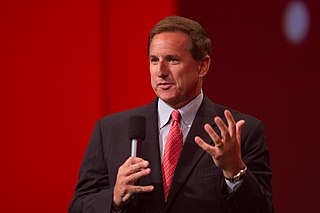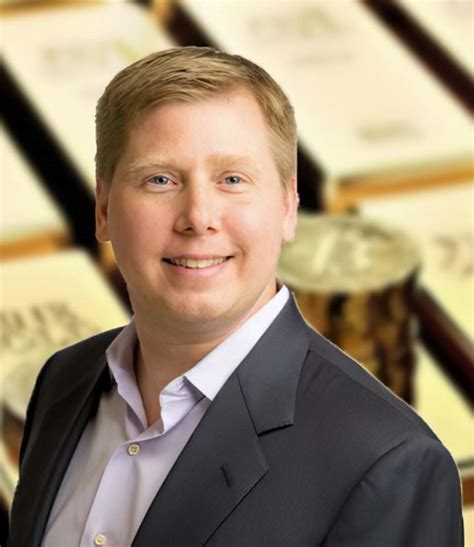A Quote by Michael Dell
The key to using the Internet to extend and build relationships is to view ownership of information differently-you need to bring customers inside your business to create information partnerships ... relationships become the differentiator, more than products or services. Businesses become intertwined.
Related Quotes
The role of business is to provide products and services that make people's live better - while using fewer resources - and to act lawfully and with integrity. Businesses that do this through voluntary exchanges not only benefit through increased profits, they bring better and more competitively priced goods and services to market. This creates a win-win situation customers and companies alike.
The information glut has become a ruling cliche. As all resources - from energy to information - become more abundant, the presure of economic scarcity falls ever more heavily on one key residual, and that single shortage looms ever more stringent and controlling. The governing scarcity of the information economy is time: the shards of a second, the hours in a day, the years in a life, the latency of memory, the delay in aluminum wires, the time to market, the time to metastasis, the time to retirement.
I would like to see transparency become the default for the American government: Abolish the Freedom of Information Act so we don't have to ask government for information but government must ask to keep information from us. The more transparent government is, the more collaborative it can become. The more our officials learn to trust us - with information and a role in government - the more we can trust them.
Normally if you add information to information, you have more information. In case of my art, I destroy information, I would say, because the image is disturbed by the writings. In a way, they become pure imagery. For me it's really fun because it's an idealistic approach to images, to just play around with information and see what's happening.
As recently as the '70s, people were forced to see information that they didn't agree with in newspapers and the like. Now there is so much information you really can build your own walled garden that just has the stuff that reinforces your view. I think it applies to all of us. People are really going into these separate camps, and that's the big social challenge in this age of too much information. How do we crack that and create a common dialogue?
I think that because of YouTube, because of MySpace, because of the digital domain that we have on the Internet, the younger generation is much more open to information. I think it's so much easier for them to gain information and trade information, and they have become more aware. In some cases, more aware than their own parents and adults, as to what's going on in the world. I find that really intriguing and interesting, and I think there is a brewing of a whole new generation of activists coming.
What is needed now are increased efforts to promote youth participation and commitment; more services aimed at youth; more parental involvement; more education and information, using schools and other sites; more protection for girls, orphaned children and young women;and more partnerships with people with HIV and AIDS.
There's a lot of health information available on your smart phone. There's financial information. There's your conversations, there's business secrets. There's an enormous long list of things that there's probably more information about you on here than exists in your home, right. Which makes it a lot more valuable to all the bad guys out there.
80% of all products and services that will be on the market in five years do not exist today. So therefore, always be innovative, always be creative, always think, 'What new products or services could I create, could I represent, could I joint venture?" Sometimes you can find someone else that has a fabulous product or service that you can use your existing business or resources to sell and you can double your income or sales in your business by selling somebody else's product to the same customers that are buying yours.
Because of the Internet's open platform, entrepreneurs have started small businesses, innovators have created online services, and webcasters have produced a diversity of news-information sources. We must make sure that winners and losers are decided by the marketplace and not your Internet service provider.

































